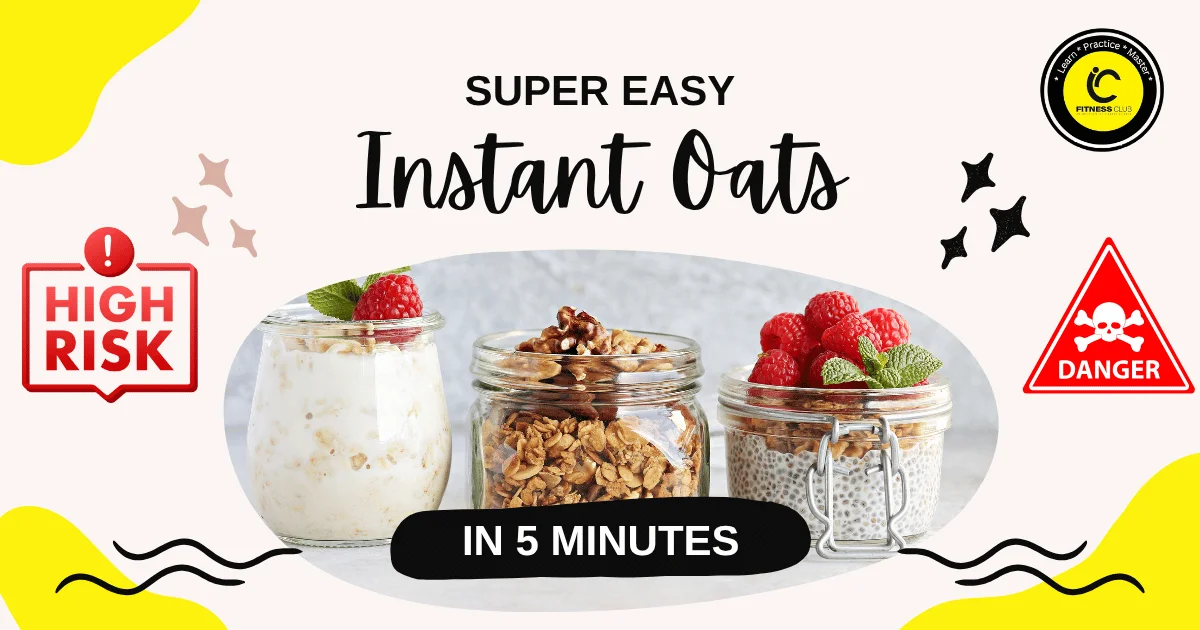Instant Oats Debunked: Why They’re a Poor Breakfast Choice
In today’s fast-paced world, instant oats are marketed as a quick and healthy breakfast option. But are they really good for your fitness goals? At IC Fitness Club, we prioritize evidence-based nutrition—and it’s time to uncover the truth about instant oats.
What Are Instant Oats?
Instant oats are the most processed form of oats. They are pre-cooked, dried, rolled thinner, and often come with added sugar, flavorings, or preservatives. While they may save time in the morning, they sacrifice key nutritional benefits in the process.
High Glycemic Index – A Hidden Problem
One major issue with instant oats is their high glycemic index (GI). Scoring around 80 on the GI scale, instant oats digest very quickly, causing a rapid spike in blood sugar and insulin levels. This can lead to:
-
Energy crashes
-
Increased hunger shortly after eating
-
Fat storage instead of fat burning
-
Insulin resistance over time
Processed vs Whole Oats – The Nutritional Gap
Compared to rolled oats or steel-cut oats, instant oats lack fiber density and have reduced satiety. Whole oats digest slower, provide longer-lasting energy, and help stabilize blood sugar—crucial for anyone on a fat loss or muscle-building plan.
Better Breakfast Alternatives
If your goal is sustainable energy, fat loss, or muscle performance, consider replacing instant oats with:
-
Steel-cut oats with whey protein
-
Boiled eggs with whole grain toast
-
Greek yogurt with nuts and seeds
-
Vegetable-loaded omelettes
These meals offer a better macro balance, higher satiety, and more nutritional value per calorie.
Conclusion: Choose Food That Fuels You
At IC Fitness Club, we don’t just train bodies—we educate minds. Instant oats may look healthy on the outside, but smart nutrition is about quality and impact. Switch to whole, less-processed options that support your metabolism, fitness, and long-term health.
To become a certified Master Personal Trainer, Click Below




